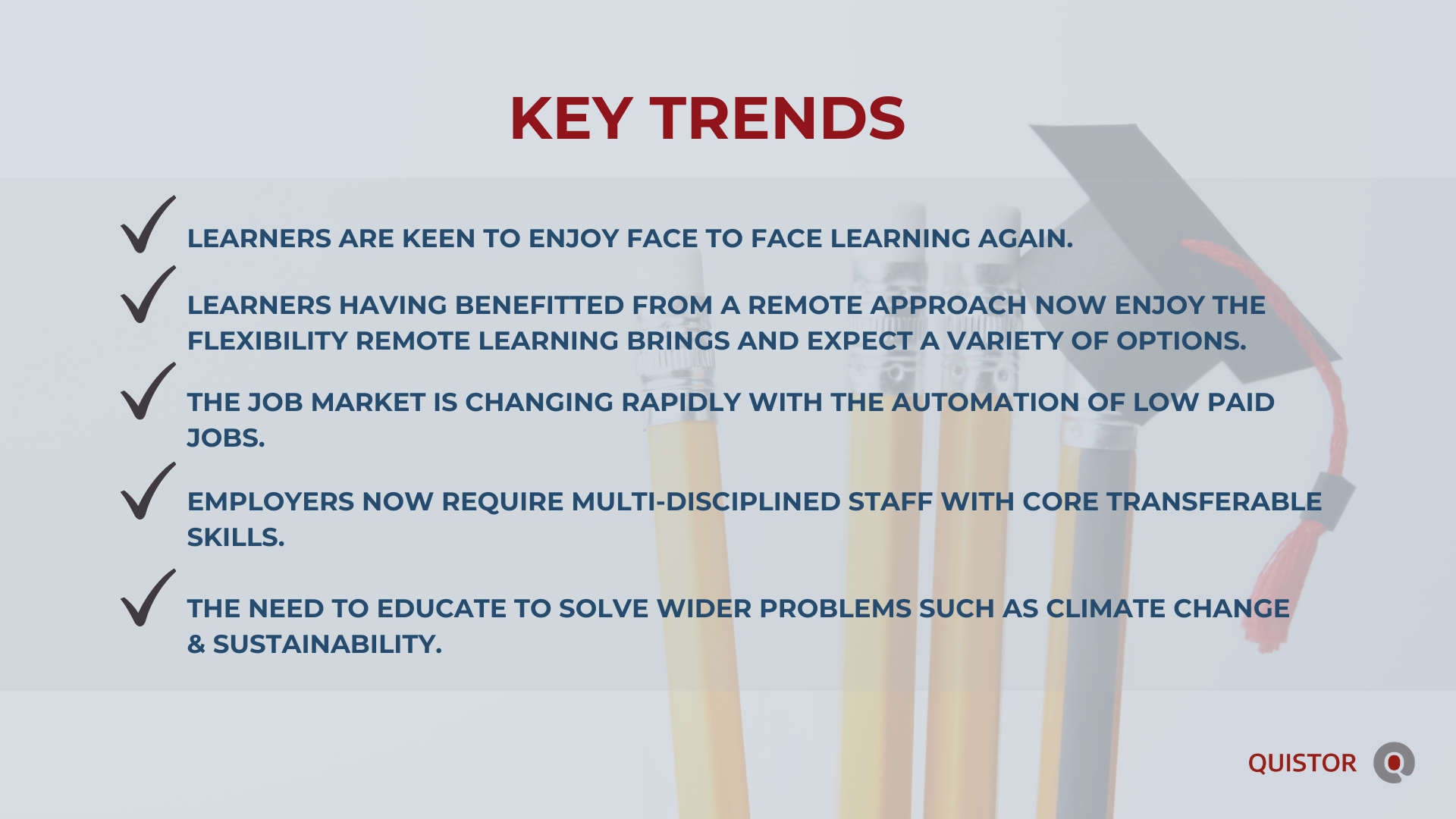Quistor at Digifest 2022
Quistor joined Jisc members at the Digifest 2022 event to consider the next stage in the evolution of learning. This year marked the moment that the event returned in person after the pandemic with talks that catered for both in person and remote virtual attendees.
In his opening keynote, Lord Jim Knight reflected on how rapidly education had to move online and how the transformation had leveraged the technology that existed already but required a crisis to be adopted. After such a rapid period of digital transformation, the event was a moment to reflect and to wonder whether rate of transformation might halt or even perhaps start go back to how things were.
Speakers reflected on how best education can meet the real needs of society. The key trends are.

Sarah Jones gazed into futures with her talk ‘the 2030 learning landscape’ offering a vision in which education had fully embraced the virtual and connected education to the demands of the commercial sector. Sarah suggested that lecturers could move to delivering lectures entirely in VR and AR making their teachings available to multiple universities. University courses would in turn change to being project based and move away from teaching single totemic subjects.
A glimpse of this future for degree courses was seen in the work of Ed Fidoe who has launched the London interdisciplinary school. His innovative approach see’s learners tackling core problems such as the need for sustainability in bespoke learning modules that help students learn core skills. As he points out the problem of climate change requires disciplines to talk to each other, in his education framework students build interactional expertise so they can form connections.
In the main hall there was an incredible demonstration of the current state of Edutech. The eco garden allowed visitors to plant trees and reflect on the need for sustainability in digital practice, all delivered via Microsoft cloud enabled Augmented reality technology. Dr Pauline Mackay lecturer in Robert Burns studies at the University of Glasgow demonstrated a VR classroom developed by Edify that provided a multi-sensory experience whereby learners could immerse themselves in a virtual recreation of Robert Burn’s world including sound and renders of historical objects. During the demo they switched over to the 5g network with no change to the experience showing how valuable 5g connections are going to be to multimedia learning, challenging the digital divide.
Education establishments need to push forward with innovation to meet the changing needs and challenges of society. The Oracle Cloud platform helps reducing admin by reducing the need to manage on premise physical servers and its Autonomous Database service automates database admin so users can focus on innovation rather than administration. For high performance computing Oracle CIoud Infrastructures high performance bare metal servers facilitate exciting research. By leveraging the OCRE framework education and research establishments can avoid the admin pain caused by tender process and have access to the best pricing automatically.
We enjoyed a wonderful two-day meeting with the Jisc partners enjoying tasty food, futuristic tech, and enlightening talks. We gently shook off some of the pandemic’s learned behaviours (with the help of some top-notch ventilation!) and welcomed people back into our space. I now look forward to continuing the conversations on how Quistor and Oracle can be the right choice for Education and research in the UK. See you all out there.
Shaun Baker, Account Manager @Quistor


